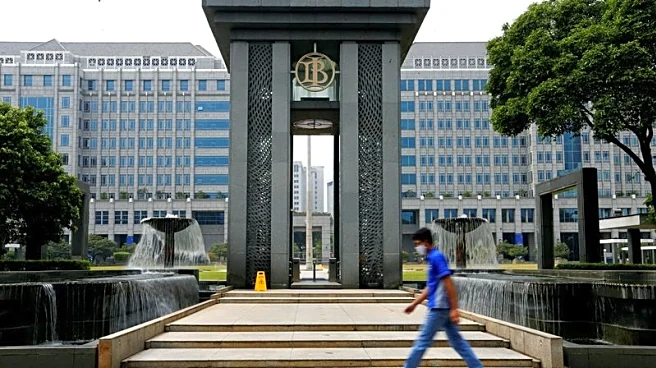JAKARTA (Reuters) - Indonesia's central bank cut interest rates again in a surprise move on Wednesday, stepping up support for Southeast Asia's largest economy against the backdrop of global uncertainties.
Bank Indonesia (BI) trimmed the benchmark 7-day reverse repurchase rate by 25 basis points to 5.00%, its fifth rate cut since September, taking it to its lowest level since late 2022.
Only five of 29 economists polled by Reuters had expected a cut on Wednesday. The rest expected rates to be kept steady.
The overnight deposit and lending rates were also cut by the same amount to 4.25% and 5.75%, respectively.
Governor Perry Warjiyo told a press conference that the decision was in line with expectations of low inflation and a stable rupiah, as well as the need to support growth.
The decision followed data earlier this month showing that economic growth accelerated to 5.12% in the second quarter, the fastest annual pace in two years, driven by robust investment and household spending.
Some economists questioned the strength of that data, pointing to indicators showing weakening domestic demand, while others have taken note of looming headwinds to growth caused by U.S. tariffs.
Indonesia's exports to the United States have been subject to a 19% tariff since August 7, the same level as Thailand, Malaysia, the Philippines and Cambodia.
BI estimates the country's 2025 economic growth will exceed the mid-point of the 4.6% to 5.4% range.
Wednesday's rate cut was the fifth since BI last September, taking the total reduction to 125 basis points. It was the first time during the easing cycle that it has made cuts at consecutive meetings.
Policymakers have said global uncertainties and their impact on the rupiah often affect the timing of their rate cuts. The rupiah is often more affected by changes in market sentiment than other emerging Asian currencies.
After Wednesday's decision, the rupiah was largely unchanged.
Last week, President Prabowo Subianto proposed a $234 billion budget for 2026, with a large increase in spending for defence and his flagship food and nutrition programmes. He is targeting economic growth of 5.4% in 2026.
(Reporting by Gayatri Suroyo, Stefanno Sulaiman and Fransiska Nangoy; Editing by David Stanway)









